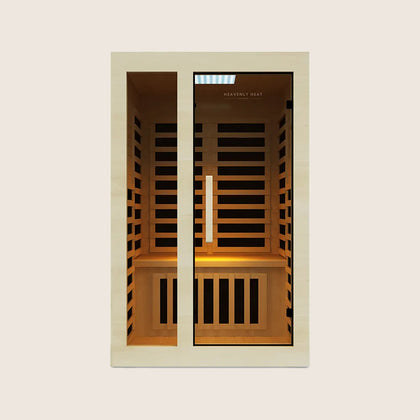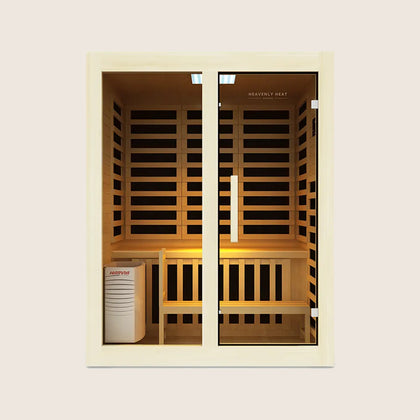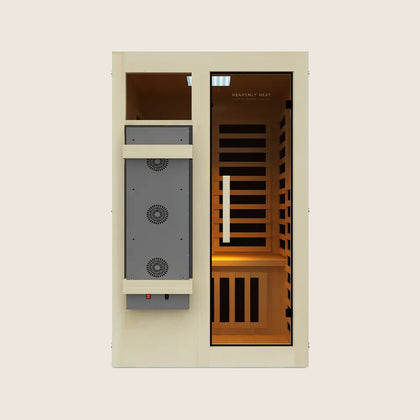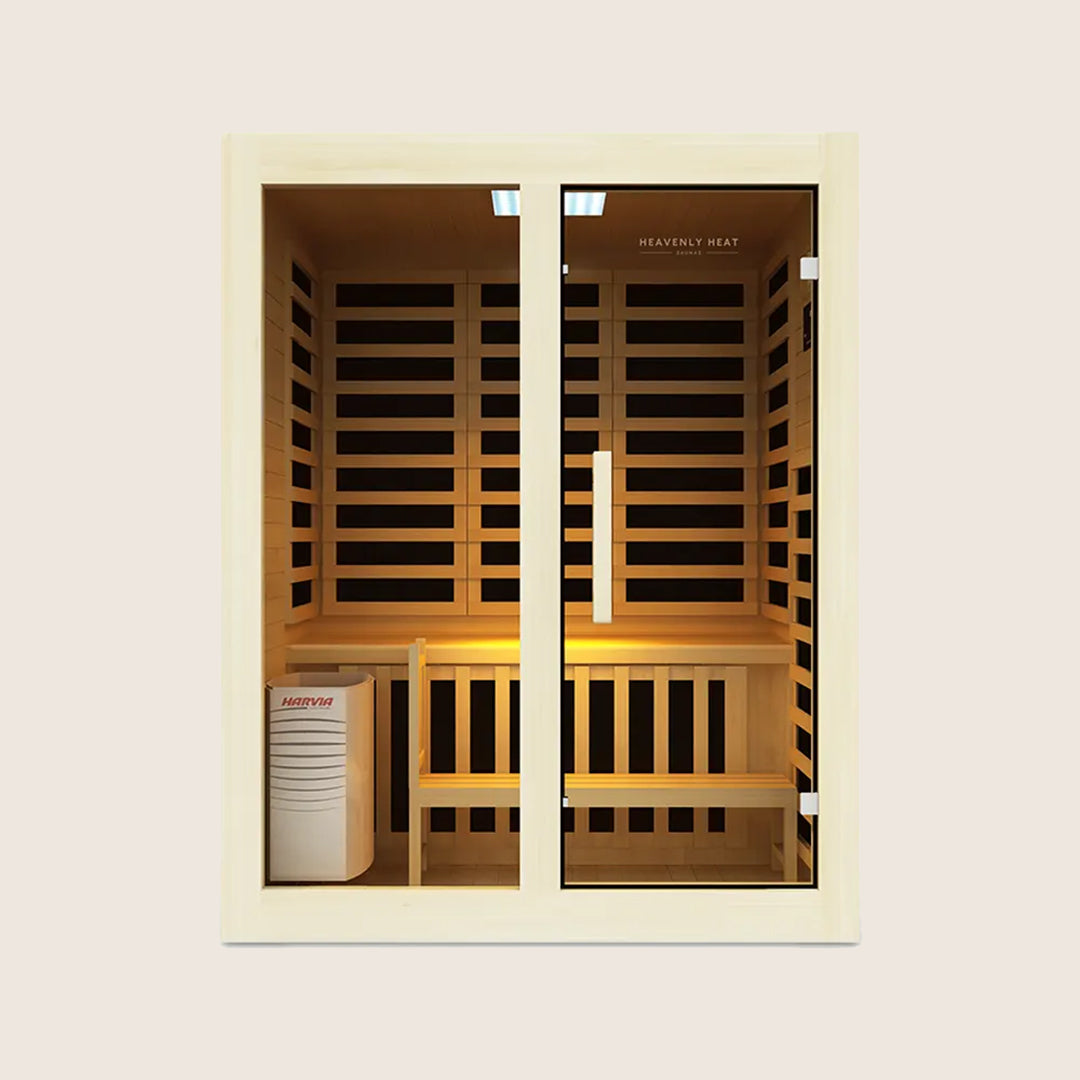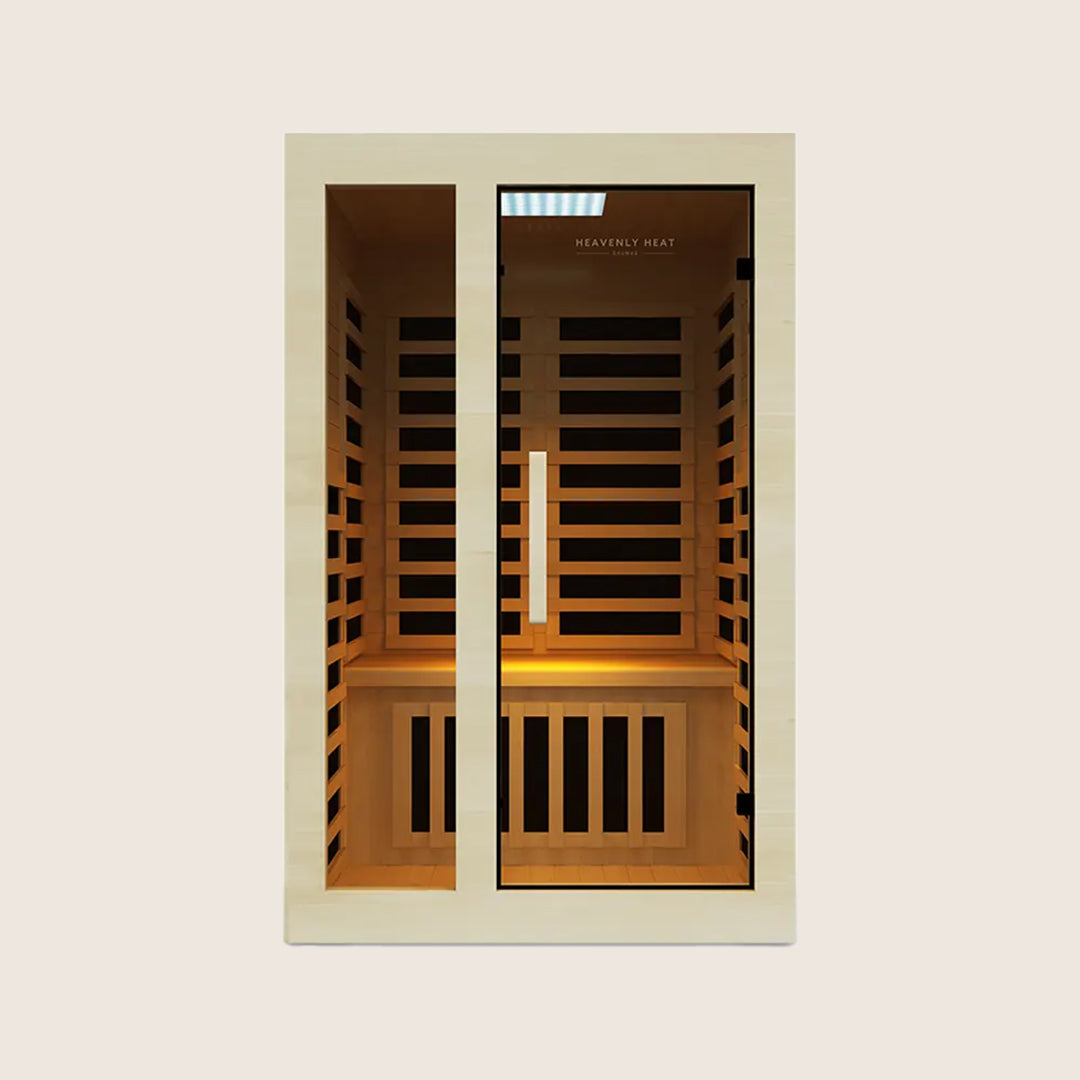Are Saunas HSA or FSA Eligible? Understanding Health Savings Account Benefits for Infrared Saunas

Many people want to use their HSA or FSA funds for a sauna but aren’t sure if it qualifies.
Without proper documentation, claims often get denied, leaving buyers frustrated and out of pocket.
The good news? With a doctor’s prescription and the right paperwork, a sauna can be eligible. Here’s how to navigate the process.
Key Takeaways
-
Saunas may be eligible for HSA or FSA reimbursement if prescribed as a medical necessity.
-
A doctor's prescription and proper documentation are often required for approval.
-
Coverage rules vary by provider, so check with your HSA/FSA administrator before purchasing.
-
If your claim is denied, you can appeal with additional medical proof and documentation.
-
Saunas may qualify as a tax-deductible medical expense if they meet IRS guidelines.
What Are HSA and FSA Accounts?
- These accounts let you save money on medical costs before taxes: Health Savings Accounts (HSA) and Flexible Spending Accounts (FSA) help you spend less on healthcare by using money that isn’t taxed. This means you keep more of your earnings while covering medical needs.
- An HSA gives you more freedom and keeps your money safe: If you have a high-deductible health plan, an HSA lets you save money that rolls over each year. You won’t lose it if you change jobs, which makes it a great long-term option.
- An FSA is helpful but you must use the money in time: FSAs are set up by your employer, and you usually have to spend the money within the same year. If you don’t, you could lose what’s left, so it’s best for short-term planning.
- Knowing the differences helps you pick what’s best for your needs: Even though both accounts help with medical expenses, they work differently. Understanding these details can help you make the smarter choice for your budget and health situation.
Key Differences Between HSA and FSA
HSAs and FSAs both allow you to use pre-tax dollars for medical expenses, but they have key differences.
HSAs require a high-deductible health plan and let you roll over unused funds each year.
FSAs, on the other hand, often follow a "use it or lose it" policy, meaning any unused balance may expire at the end of the plan year.
Are Saunas Covered by HSA or FSA?
Saunas may qualify for HSA or FSA reimbursement if they are deemed medically necessary.
This means a doctor must prescribe sauna use to treat a specific health condition.
However, not all providers approve sauna purchases, so it’s essential to check with your HSA or FSA administrator before making a purchase.
When Is a Sauna Considered a Medical Necessity?
A sauna is considered a medical necessity when a doctor determines it treats a specific condition, such as arthritis, chronic pain, or cardiovascular issues.
To qualify for HSA or FSA reimbursement, you may need to submit medical documentation supporting the necessity of sauna therapy.
Do You Need a Doctor’s Prescription for a Sauna?
In most cases, yes. A doctor’s prescription is required to justify sauna use as a medical necessity. Without this documentation, your HSA or FSA provider may deny your claim.
How to Use HSA/FSA Funds for a Sauna Purchase
Managing Chronic Pain with a Sauna
Saunas help manage chronic pain by improving circulation, reducing inflammation, and promoting muscle relaxation.
Conditions such as arthritis, fibromyalgia, and back pain may benefit from regular sauna use, as heat therapy eases stiffness and enhances mobility.
Sauna Therapy for Muscle Recovery and Relaxation
Using a sauna after exercise can speed up muscle recovery by increasing blood flow and reducing soreness.
The heat helps muscles relax and releases endorphins, which contribute to overall well-being and stress relief.
Relieving Arthritis and Joint Pain
- Using heat can make stiff joints feel more relaxed: Infrared saunas help reduce joint stiffness by increasing blood flow, which can make movement feel easier and more comfortable.
- Deep warmth helps reduce the pain caused by swelling: The heat from the sauna reaches deep into the body, calming the inflammation that causes pain in arthritis and joint issues.
- People with RA and AS often feel better after sauna sessions: Those living with rheumatoid arthritis (RA) and ankylosing spondylitis (AS) often say that sauna therapy helps them move better and feel less pain.
- A short sauna routine has shown real results in studies: A study found that 4-week infrared sauna program led to clear improvements in pain, stiffness, and fatigue for people with arthritis, with no bad side effects.
- Saunas are gentle and safe for regular use with arthritis: Because infrared saunas are easy on the body and don’t cause harm, they’re a reliable way to support arthritis relief over time.
Saunas for Stress Reduction and Mental Well-Being
Regular sauna use promotes relaxation by reducing stress hormones and encouraging endorphin release. This can lead to improved mood, better sleep, and overall mental well-being.
Detoxification and Skin Health Benefits
Sweating in a sauna helps remove toxins and clear out impurities from the skin. This process improves complexion, unclogs pores, and leaves the skin looking healthier.
Using a Sauna for Respiratory Health and Congestion Relief
Heat and steam from a sauna can help clear nasal passages, making it easier to breathe. This is especially beneficial for individuals with asthma, allergies, or respiratory infections
Boosting Immune System Function with Sauna Therapy
Saunas support immune function by raising body temperature, which can help fight off infections.
The increased circulation and detoxification effects also contribute to a stronger immune response.
How to Check If Your Sauna Is Eligible for HSA/FSA
Contact your plan administrator to determine whether your sauna purchase qualifies for reimbursement.
You may need to provide a doctor's prescription or medical documentation showing the sauna is necessary for treating a specific health condition.
Do Different Providers Have Different Sauna Coverage Rules?
es, each HSA and FSA provider sets its own rules for coverage. While some may allow sauna purchases with proper documentation, others might have stricter policies. Always verify eligibility directly with your provider before making a purchase.
What If Your HSA/FSA Claim for a Sauna Is Denied?
Reason for Denial
Denials often occur because providers classify saunas as non-medical expenses. Lack of a qualifying diagnosis or missing documentation can also result in rejection. Understanding the reason helps in determining the next steps.
Review Plan Guidelines
Before appealing, review your HSA/FSA plan's rules. Some providers offer a pre-approved list of medical expenses. Checking these details in advance helps avoid unnecessary claim denials.
Check for Errors
Incorrect information, missing documents, or mismatched claim details can lead to rejections.
Double-check that the submission includes the correct HSA/FSA account number, personal details, and an itemized receipt.
Submit an Appeal
If denied, file an appeal with supporting medical documents and a letter of medical necessity from a doctor.
Appeals typically have deadlines, so submitting promptly increases the chances of approval.
Provide Medical Proof
A doctor's note must clearly state the medical condition and explain why sauna therapy is necessary. If possible, attach test results or additional medical records to strengthen the claim.
Contact HSA/FSA Provider
Reaching out to the provider for clarification on claim requirements helps resolve disputes.
Some providers have dedicated customer support for claim appeals, making the process easier.
Reapply with Documentation
If initially denied, resubmitting with stronger documentation may help. Ensure all necessary paperwork, including prescriptions and receipts, is included for better chances of approval.
Can You Deduct a Sauna as a Medical Expense on Taxes?
- Sauna as a Medical Deduction Only with a Doctor’s Prescription: A sauna may qualify as a tax-deductible medical expense only if prescribed by a healthcare provider to treat a specific medical condition.
- Sauna and Sleep: A Legitimate Wellness Benefit: Heat therapy, including sauna use, is commonly recommended to reduce stress and improve sleep , which are essential for overall well-being.
- Calming the Mind and Body Through Heat: study found that Just like weighted blankets help children with ADHD feel calmer and sleep better, saunas can support relaxation, emotional balance, and routine sleep patterns .
- Saunas Can Be a Health Investment When Linked to Treatment: Because of their impact on stress reduction and sleep disorders , saunas may be viewed not just as luxury items, but as valuable investments in health when medically justified.
Are massage chairs HSA or FSA Eligible?
A massage chair is a special chair designed with motors, rollers, and nodes that mimic the movements of a real massage, often using Shiatsu or Swedish techniques to ease tension and improve circulation.
While they can feel great and support overall wellness, massage chairs aren't eligible for HSA or FSA reimbursement because they’re usually seen as general relaxation tools, not medical treatments for specific conditions.
Are standing desks HSA or FSA Eligible?
Standing desks, which can be adjusted for sitting or standing, have become popular as a way to reduce the health risks of sitting all day.
While they offer wellness benefits, standing desks aren’t HSA or FSA eligible. That’s because they’re seen as general health items, not qualified medical expenses under IRS rules—even though they help promote better posture and reduce workplace inactivity.



